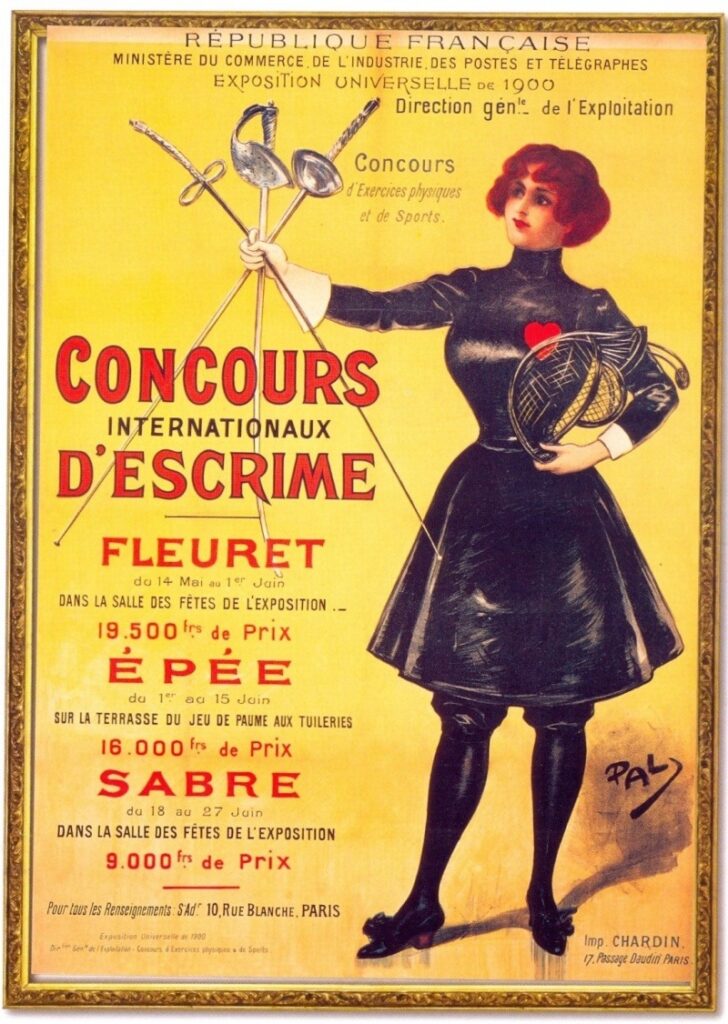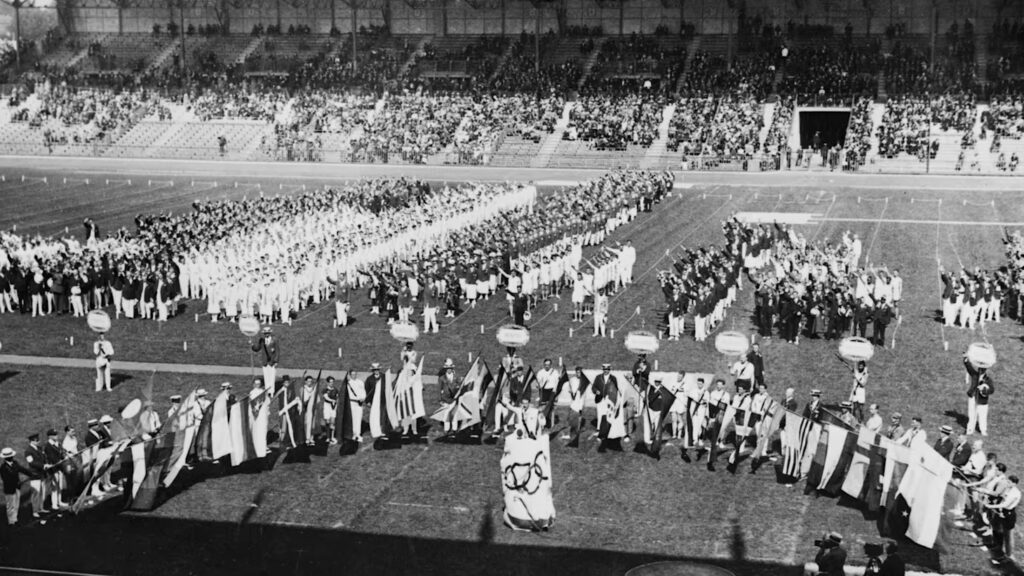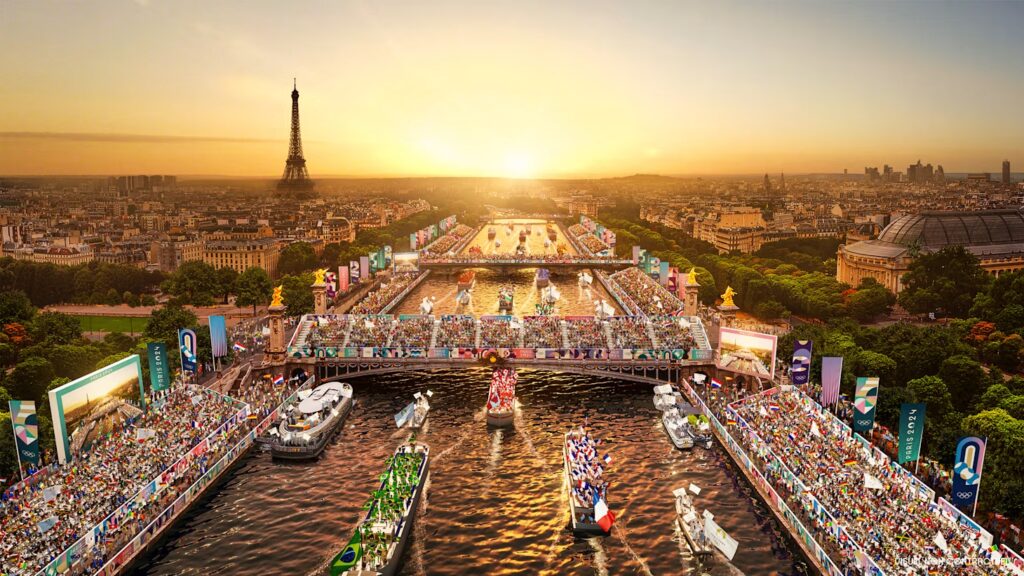
The Paris Olympics 2024 will mark the city’s third time hosting the Games, following 1900 and 1924. Each iteration has delivered unique moments and innovations, mirroring the evolution of the Olympic movement and the world at large.
The 1900 Summer Olympics were notably chaotic, integrated with the 1900 Paris Exposition, leading to a scattered schedule across multiple venues over five months. These Games were significant for being the first to include female athletes. Helene de Pourtales, who was American-born, achieved a historic milestone by becoming the first female Olympic champion as part of the Swiss team that won the 1-2-ton sailing event. Shortly thereafter, Charlotte Cooper from the UK became the first woman to win an individual event by claiming victory in singles tennis competition. She later won the mixed doubles title as well.
In 1900, one unique feature was that, most winners received cups or trophies instead of medals. Fencing included professional competitors, maintaining tradition. Albert Robert Ayat of France, who won the ‘epee’ (a type of sword used in one of the three disciplines of modern fencing) category for amateurs and masters, received a prize of 3000 francs. Several events were held for the first and the only time in Olympic history, such as angling, motor racing, ballooning, cricket, croquet, Basque pelota, 200m swimming obstacle race, and underwater swimming. Additionally, this was the only Olympic Games to feature live animals, specifically pigeons, as targets in a shooting event.
The 1900 Olympics also saw the debut of several new sports, including archery, equestrian, football and rowing, broadening the Olympic programme. The 1900 Games also marked a milestone. Constantin Henriquez, a member of the French rugby team, is believed to be the first black athlete to win an Olympic gold medal.
Cricket will return to the Olympics in 2028 in the Twenty20 format. At the 1900 Paris Olympics, a cricket match was held on August 19-20 at the Velodrome de Vincennes between Great Britain and France. Great Britain won by 158 runs. The French team included 10 British nationals, making it a mixed team, although the IOC lists it as representing France.
Originally, Belgium, France, Great Britain and the Netherlands entered the tournament, but Belgium and the Netherlands withdrew. The British side was a touring club — Devon and Somerset Wanderers — while the French team consisted mainly of British expatriates. Great Britain scored 117 and 145/5, declared, while France scored 78 and 26. Great Britain won with five minutes remaining. The British team received silver medals, and the French team received bronze medals and miniature Eiffel Tower statues. (It’s not clear what happened to the gold medal though).

The “Flying Finns” excelled in long-distance running, while British and American athletes dominated the shorter races. Paavo Nurmi claimed victory in the 1,500m and 5,000m races, held just an hour apart, as well as the cross-country run. Ville Ritola won the 10,000m and 3000m steeplechase, finishing second to Nurmi in 5,000m and cross-country events.
Albin Stenroos triumphed in the marathon, and the Finnish team, including Nurmi and Ritola, won the 3000m and cross-country team events. British runners Harold Abrahams and Eric Liddell won the 100m and 400m events, respectively. Liddell, a devout Christian, refused to compete in the 100m dash because it was scheduled on a Sunday. Their stories were famously portrayed in the 1981 film “Chariots of Fire.”
The Games were not without controversies, notably the rugby union final between the United States and France, which ended in a brawl and subsequent riots by French spectators, leading to rugby’s long absence from the Olympic programme.

A century later, as Paris prepares for the 2024 Olympics, the Games promise to bring new and exciting features, emphasising sustainability and gender equality. For the first time, there will be an equal number of male and female athletes, marking a significant step towards gender equality in sports.
Over 95% of the venues will be either pre-existing or temporary, demonstrating commitment to sustainability by minimising environmental impact and reducing costs. Events will be held at some of Paris’s most iconic landmarks, including beach volleyball at the Eiffel Tower, marathon swimming over the Seine, and equestrian events at the Palace of Versailles, blending the city’s historic charm with the Olympic spirit.
The 2024 Games will also introduce new sports like break-dancing, alongside the inclusion of skateboarding, sport climbing, and surfing, aiming to engage younger audiences and reflect contemporary athletic interests. Additionally, technological innovations will enhance broadcasting and fan engagement, providing a more immersive experience for global audiences. The 2024 Olympics promise to blend tradition with innovation, celebrating athletic excellence while championing sustainability and equality, continuing the city’s legacy in the Olympic movement.




